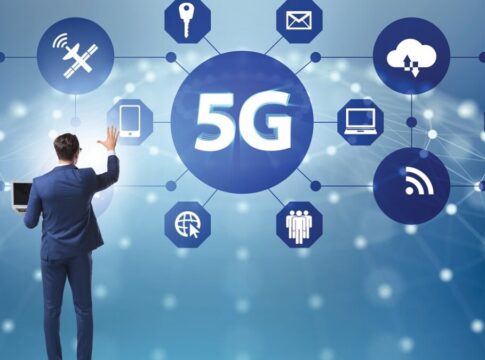The National Telecom Regulatory Authority (NTRA) of Egypt has entered into a landmark agreement with the country’s leading telecom providers—Orange Egypt, Vodafone Egypt, and e& Egypt—effectively granting them licenses to operate fifth-generation (5G) mobile services. This move marks a pivotal step in Egypt’s technological advancement in telecommunications.
In a series of developments aimed at pioneering 5G infrastructure, Telecom Egypt has initiated experimental deployment of 5G services across five strategic locations within the country. This initiative comes on the heels of a substantial agreement valued at $150 million, as announced by the Ministry of Communications and Information Technology. The cumulative investment for all involved companies now stands at $675 million.
This ambitious project not only facilitates the rollout of 5G services but also involves renewing licenses for previous network generations, ensuring their validity for the next 15 years. The signing ceremony was underscored by Minister Amr Talaat, who highlighted the profound economic impact that 5G technology is poised to deliver. He noted that the new technology would enhance Egypt’s standing in global telecommunications rankings and significantly propel its digital transformation journey.
5G technology offers groundbreaking capabilities with ultra-fast speeds, substantially higher than its predecessor, 4G. According to Cisco, a leader in communication solutions, 5G can achieve data transfer speeds up to 20 Gbps, a stark contrast to the 1 Gbps maximum seen in 4G technology. This leap in speed and efficiency is expected to revolutionize various sectors, providing unparalleled opportunities for innovation and growth.
For consumers to harness the full potential of 5G, their devices must be equipped with specific capabilities. Phones need to support the 5G New Radio (NR) standard and be fitted with compatible chipsets like the Qualcomm Snapdragon 888 or newer, which are designed to handle the enhanced 5G functionalities. These functionalities include improved bandwidth, reduced latency, and the ability to connect multiple devices seamlessly.
5G’s introduction also brings about transformative features such as enhanced mobile broadband, ultra-reliable low-latency communication, and massive machine-type communications. These features unlock new possibilities in areas like augmented reality (AR), virtual reality (VR), and the Internet of Things (IoT), paving the way for smart cities and advanced industrial applications.
The rollout of 5G services in Egypt aligns with the government’s commitment to providing state-of-the-art telecommunications services, fostering a competitive market environment, and attracting investments in the sector. This initiative is designed not only to meet the growing demand for high-speed internet but also to support innovative applications that could redefine industry standards.
Countries in the Middle East and Africa are rapidly embracing 5G technology. The United Arab Emirates and Saudi Arabia have been at the forefront, launching extensive 5G networks and integrating them into smart city projects. South Africa is also making significant strides, with major telecom companies already offering 5G services in several cities. These advancements position the region as a key player in the global digital economy, enhancing connectivity and enabling cutting-edge technological innovations.


